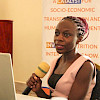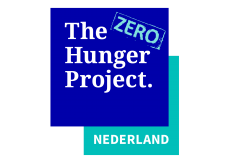'I jump on board when I see something has to change'
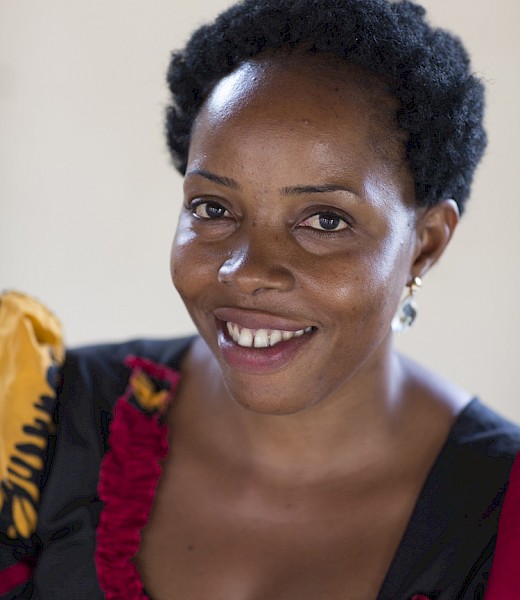
Despite substantial reduction in the prevalence of stunting, undernutrition in all its forms continues to be a development challenge in Uganda.
Although malnutrition in Uganda has been decreasing in recent years, wasting and stunting levels among children remain very high. The causes of undernutrition in children under five are multidimensional. These include lack of awareness on good food feeding practices and child care, limited availability and access to diversified foods, and poverty. Additionally, negative attitudes and beliefs, poor sanitation and hygiene practices, inadequate access to safe water, inadequate budgetary allocation, and poor social services delivery compound the issue.
The prevalence of undernutrition in children under five decreases with increasing levels of the mother’s education. Similarly, stunting decreases with increasing wealth. Overconsumption of staples and fewer diverse foods plays a major role in micronutrient deficiency in Uganda. Importing food supplements should not be necessary in Uganda, which has a large population in rural or semi-rural areas and plenty of fertile land.
Home to many neglected and underutilised species of plants which could contribute to greater nutrition and health, there is a great potential to improve diets and build climate resiliency in the food supply at local level. Communities in both rural and urban areas are gradually experiencing negative impacts of climate change. The weather patterns are less predictable and disrupt rain-dependent farming calendars, especially for poor householders.
During periods of prolonged droughts, access to diversified diets becomes a challenge and most families survive on energy-rich mono-diets. Nutrient rich crops like fruits and vegetables become less available due to water stress, as well as crop pests and diseases. Access to clean and safe water becomes a huge problem during the dry periods. Women and girls walk longer distances to access water for home use, which increases their workloads.
With water shortages, communities’ behaviours and practices of good hygiene practices are undermined. Inadequate access to WASH services and poor household level practices contribute significantly to underlying causes of malnutrition in Uganda. According to the World Health Organisation, 50% of malnutrition is associated with repeated diarrhoea or intestinal worm infections because of unsafe water, inadequate sanitation, or insufficient hygiene. Women and girls remain the major water collectors, users, and promoters of households and community sanitation activities.
children under five years are stunted
of childbearing age women are malnourished
children under five years in rural areas are stunted
children under five years in urban areas are stunted
Our partnership aims for decision-makers and key stakeholders to jointly and effectively address undernutrition in Uganda in a multisectoral, gender-sensitive, and inclusive way.
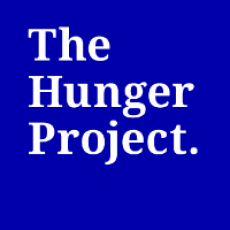
THP Uganda works with a strong base of over 2000 community volunteer change agents to promote sustainable, women-centred and community-led strategies to sustainably end poverty and hunger.
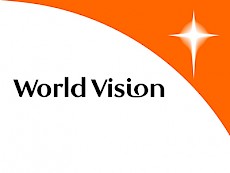
World Vision reaches one new person with clean water every 10 seconds and reaches three new schools every day with clean water. Over the last five years, 89% of the severely malnourished children treated made a full recovery.
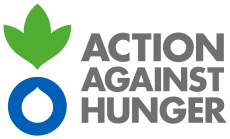
Action Against Hunger is an expert in nutrition, WASH, food security and livelihood. Their focus on evidence-building is crucial for the ongoing development of approaches and policies related to nutrition related advocacy.
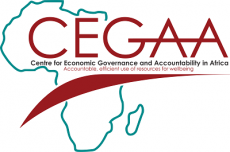
Centre for Economic Governance and Accountability in Africa empowers civil society organizations and public servants through capacity building and technical support on budget tracking; evidence generation, research, and budget analyses.
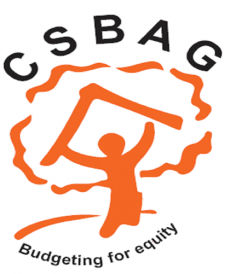
Civil Society Budget Advocacy Group convenes 100 members to support community members, especially youth and women to advocate for their budget needs.

Community Integrated Development Initiatives envisions communities enjoying a decent life free of hunger, poverty and disease through promoting sustainable community livelihoods; Income and Food security, Water and sanitation; Good health and Policy advocacy.
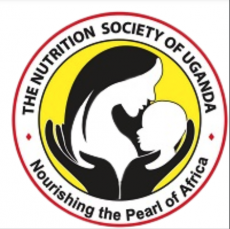
Nutritional Society of Uganda is an umbrella organization for nutritionists to increase visibility, coordinate actions, and mentor nutritionists. The society provides a voice and a special platform for experts to interact, especially influencing policy in the health and nutrition sector.
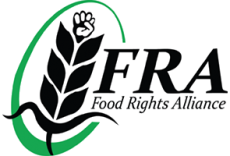
Food Rights Alliance brings organizations together to ensure that the right to adequate food is not violated, the farming and food system has safeguards that maintain the people at heart and promote the right to food as a pivot for social, economic and democratic transformation.
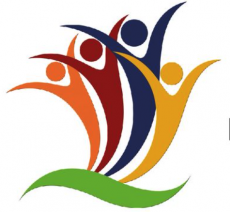
The Movement for Community Led Development Uganda Chapter plays a key role in influencing policy processes and practice, promote civic engagement, grassroots base advocacy for social change, promoting inclusive and participatory development at all levels, and putting communities at the center of development.
